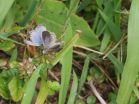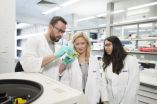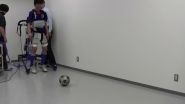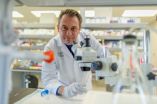(Press-News.org) Presenting an authentic image on social network sites (SNSs) includes an element of fakery according to a new study by researchers at Aalto University. During the study, researchers discovered that being authentic is very important for social media users. At the same time, users also admitted faking parts of their online image in order to conform to social norms and expectations.
By focusing on two SNSs, Facebook and Last.fm, the researchers came to the conclusion that being real is much more acceptable according to social norms.
Although both of these SNSs differ in the manner in which users are able to share content, we noticed that there was a heavy focus on maintaining a profile that is as natural as possible, said Suvi Uski of Aalto University.
We also encountered a widespread disdain by users for what is known as profile tuning, or intentionally sharing content designed to depict the user in a false way.
Sharing personal content online on social network sites has become a common activity for increasing numbers of people around the world.
"But what our study reveals is a common belief that sharing content in a way that is considered to be excessive, attention seeking or somehow portrays that individual in a fake manner is judged extremely negatively," said Uski.
However, this presented the researchers with an interesting paradox.
"While social norms required individuals to be real in their sharing behaviour, presenting oneself in the right way through sharing often necessitated an element of faking," added Airi Lampinen, co-author of the study.
This faking was particularly noticeable on the music-sharing platform Last.fm where content is shared automatically.
"We found that it was not uncommon for some users to purposely choose to listen to, or indeed not listen to, particular music according to the image that that individual wants to portray to others," said Lampinen.
In addition, users of Facebook have a high degree of control on what is shared with others, but we found they often chose not to share anything for fear of conveying the wrong message to fellow users.
Consequently our desire to be regarded as authentic in social media can also prove to be difficult to achieve. A desire to conform actually inhibits a truthful unencumbered sharing of content. Importantly, this leads the researchers to conclude that displaying an authentic image on SNSs is actually more controlled than first thought.
"Social norms and self-presentation on social network sites: Profile work in action" was published online in the latest edition of journal New Media and Society.
INFORMATION:
More Information
Suvi Uski
Email: suvi.uski@gmail.com
Tel: +45 634 2709
Twitter: @SuviSilfverberg
Airi Lampinen
Email: airi.lampinen@hiit.fi
Tel: +358 50 301 6971
Twitter: @airi_
Link to the article:
http://nms.sagepub.com/content/early/2014/07/16/1461444814543164.short?rss=1&ssource=mfr
People fake to look authentic on social media
Presenting an authentic image on social network sites includes an element of fakery according to a new study by researchers at Aalto University
2014-08-14
ELSE PRESS RELEASES FROM THIS DATE:
Fukushima's legacy
2014-08-14
Following the 1986 Chernobyl nuclear power plant meltdown, biological samples were obtained only after extensive delays, limiting the information that could be gained about the impacts of that historic disaster. Determined not to repeat the shortcomings of the Chernobyl studies, scientists began gathering biological information only a few months after the disastrous meltdown of the Fukushima Daiichi power plant in Japan in 2011. Results of these studies are now beginning to reveal serious biological effects of the Fukushima radiation on non-human organisms ranging from ...
Immune cell discovery could help to halt cancer spread
2014-08-14
Melbourne researchers have revealed the critical importance of highly specialised immune cells, called natural killer cells, in killing melanoma cells that have spread to the lungs.
These natural killer cells could be harnessed to hunt down and kill cancers that have spread in the body.
The team, from the Walter and Eliza Hall Institute, also found natural killer cells were critical to the body's rejection of donor bone marrow transplants and in the runaway immune response during toxic shock syndrome.
The discoveries came after the team showed that a protein called ...
Newborns' genetic code sends infection distress signal
2014-08-14
Babies suffering from life-threatening bacterial infections such as sepsis could benefit from improved treatment, thanks to a ground-breaking study.
For the first time, researchers have been able to detect and decode a signal generated from a baby's DNA that can tell doctors whether or not a bacterial infection is present in the bloodstream.
The findings could help develop a test for bacterial infection in newborns, using a single drop of blood.
Immediate detection of such infections, which are a major cause of death among young children, is currently impossible ...
Bypass commands from the brain to legs through a computer
2014-08-14
VIDEO:
The right arm muscles and the locomotion center of the man are artificially connected through a computer. His legs are in a relaxed state. When he moves his right hand,...
Click here for more information.
Gait disturbance in individuals with spinal cord injury is attributed to the interruption of neural pathways from brain to the spinal locomotor center, whereas neural circuits locate below and above the lesion maintain most of their functions. An artificial connection ...
Aspirin may slow recurrence in breast cancer patients
2014-08-14
SAN ANTONIO (August 14, 2014) — New findings published today in the journal Cancer Research reveal that some postmenopausal overweight breast cancer patients who use common anti-inflammatory drugs like aspirin or ibuprofen have significantly lower breast cancer recurrence rates.
Researchers from the Cancer Therapy & Research Center at The University of Texas Health Science Center at San Antonio and the University of Texas at Austin began by examining blood serum from CTRC breast cancer patients, said CTRC oncologist Andrew Brenner, M.D., Ph.D.
Studying Blood Serum
They ...
Protein found to block benefits of vitamin A cancer therapy
2014-08-14
Retinoic acid is a form of vitamin A that is used to treat and help prevent the recurrence of a variety of cancers, but for some patients the drug is not effective. The reason for this resistance was unclear until this week when researchers from Virginia Commonwealth University (VCU) Massey Cancer Center demonstrated that a protein known as AEG-1 blocks the effects of retinoic acid in leukemia and liver cancer. Because AEG-1 is overexpressed in nearly every cancer, these findings could impact the care of countless cancer patients.
Details of the study were published ...
Lionfish characteristics make them more 'terminator' than predator
2014-08-14
SACRAMENTO, Calif. – New research on the predatory nature of red lionfish, the invasive Pacific Ocean species that is decimating native fish populations in parts of the Caribbean Sea and Atlantic Ocean, seems to indicate that lionfish are not just a predator, but more like the "terminator" of movie fame.
The finding of behavior that was called "alarming" was presented today by Kurt Ingeman, a researcher from Oregon State University, at the annual meeting of the Ecological Society of America.
Most native predatory fish are attracted to prey when their numbers are high, ...
NSAIDs may lower breast cancer recurrence rate in overweight and obese women
2014-08-14
PHILADELPHIA — Recurrence of hormone-related breast cancer was cut by half in overweight and obese women who regularly used aspirin or other nonsteroidal anti-inflammatory drugs (NSAIDs), according to data published in Cancer Research, a journal of the American Association for Cancer Research.
"Our studies suggest that limiting inflammatory signaling may be an effective, less toxic approach to altering the cancer-promoting effects of obesity and improving patient response to hormone therapy," said Linda A. deGraffenried, PhD, associate professor of nutritional sciences ...
Mayo Clinic challenges some recommendations in updated cholesterol treatment guideline
2014-08-14
A Mayo Clinic task force challenges some recommendations in the updated guideline for cholesterol treatment unveiled by the American College of Cardiology (ACC) and American Heart Association (AHA) in 2013. The task force concludes, based on current evidence, that not all patients encouraged to take cholesterol-lowering medications, such as statins, may benefit from them and that the guideline missed some important conditions that might benefit from medication.
Furthermore, the task force believes an emphasis needs to be placed on an individualized treatment approach ...
NSAIDs benefit overweight breast cancer patients, study finds
2014-08-14
AUSTIN, Texas — Researchers have determined that postmenopausal overweight or obese breast cancer patients receiving hormone therapy as part of their treatment and who use nonsteroidal anti-inflammatory drugs (NSAIDs) such as aspirin or ibuprofen have significantly lower breast cancer recurrence rates and a sizable delay in time to cancer recurrence.
The findings, published in the Aug. 14 edition of Cancer Research, suggest a new possibility for reducing the incidence of breast cancer recurrence among overweight and obese postmenopausal women, who have a comparatively ...
LAST 30 PRESS RELEASES:
Scientists deliver new molecule for getting DNA into cells
Study reveals insights about brain regions linked to OCD, informing potential treatments
Does ocean saltiness influence El Niño?
2026 Young Investigators: ONR celebrates new talent tackling warfighter challenges
Genetics help explain who gets the ‘telltale tingle’ from music, art and literature
Many Americans misunderstand medical aid in dying laws
Researchers publish landmark infectious disease study in ‘Science’
New NSF award supports innovative role-playing game approach to strengthening research security in academia
Kumar named to ACMA Emerging Leaders Program for 2026
AI language models could transform aquatic environmental risk assessment
New isotope tools reveal hidden pathways reshaping the global nitrogen cycle
Study reveals how antibiotic structure controls removal from water using biochar
Why chronic pain lasts longer in women: Immune cells offer clues
Toxic exposure creates epigenetic disease risk over 20 generations
More time spent on social media linked to steroid use intentions among boys and men
New study suggests a “kick it while it’s down” approach to cancer treatment could improve cure rates
Milken Institute, Ann Theodore Foundation launch new grant to support clinical trial for potential sarcoidosis treatment
New strategies boost effectiveness of CAR-NK therapy against cancer
Study: Adolescent cannabis use linked to doubling risk of psychotic and bipolar disorders
Invisible harms: drug-related deaths spike after hurricanes and tropical storms
Adolescent cannabis use and risk of psychotic, bipolar, depressive, and anxiety disorders
Anxiety, depression, and care barriers in adults with intellectual and developmental disabilities
Study: Anxiety, gloom often accompany intellectual deficits
Massage Therapy Foundation awards $300,000 research grant to the University of Denver
Gastrointestinal toxicity linked to targeted cancer therapies in the United States
Countdown to the Bial Award in Biomedicine 2025
Blood marker from dementia research could help track aging across the animal world
Birds change altitude to survive epic journeys across deserts and seas
Here's why you need a backup for the map on your phone
ACS Central Science | Researchers from Insilico Medicine and Lilly publish foundational vision for fully autonomous “Prompt-to-Drug” pharmaceutical R&D
[Press-News.org] People fake to look authentic on social mediaPresenting an authentic image on social network sites includes an element of fakery according to a new study by researchers at Aalto University





